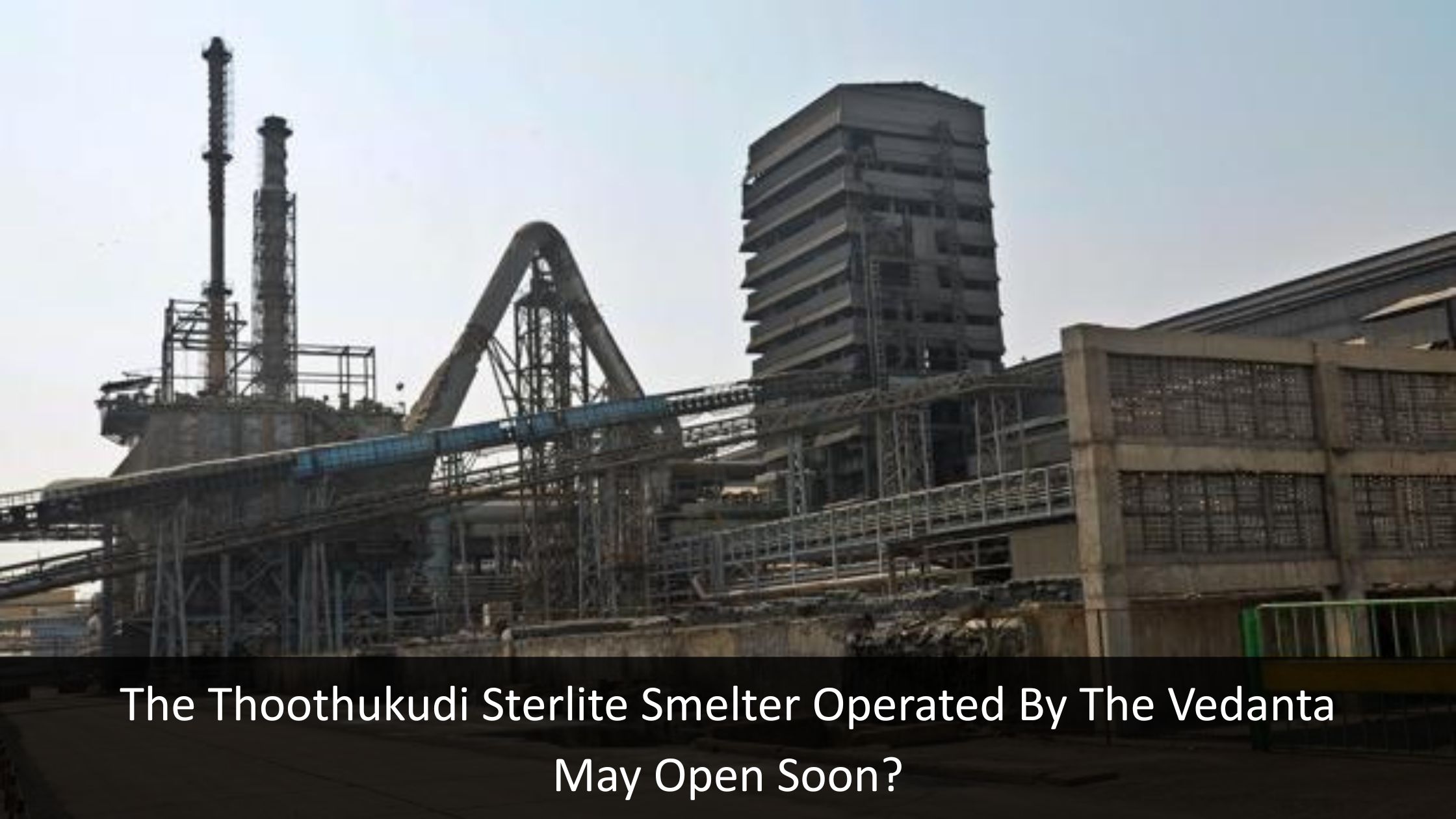The Vedanta Thoothukudi Sterlite smelter may reopen soon. An expert panel had earlier been formed to determine the future of the smelter, which had been shut down. The panel has recently recommended a green restart of Sterlite Copper under strict sustainability. If the guidance is followed, the Vedanta Group will once again be able to carry out operations at the Vedanta Sterlite copper plant. Its copper production will also gradually increase in the upcoming years.
The Decision To Restart Operations At The Sterlite Copper Smelter:
The Vedanta Sterlite Copper Smelter, which happened to be the epicentre of various controversies, may witness a dramatic turnaround in the upcoming years. An expert committee has recently suggested a green restart of the Vedanta Sterlite copper plant operated by the Vedanta Group. This plant has remained shut since 2018 following various controversies, post which a panel was formed at the request of Vedanta.
The panel submitted a detailed report proposing a new, environmentally responsible and socially inclusive path for the reopening of the plant. This appears to be a big win for the Vedanta Group’s copper business. It will ensure that the group is once again able to regain control over the country’s copper sector. The growing copper demands in the country will also be met.
The Details Of The Report Submitted By The Panel:
The recent report was authored by Ganapati D. Yadav, emeritus professor and former Vice-Chancellor of the Institute of Chemical Technology, Mumbai, and R. Nagendran, retired environmental engineering professor from Anna University. As per the document, the Sterlite Copper plant can restart operations only after adopting a stringent environmental protocol and radical changes in the mode of production and community engagement practices.
The Implementation Of Hybrid Copper Production Model:
A primary recommendation is to implement the hybrid copper production model at the Sterlite Copper plant. As per that model, 30% of the copper output would come from recycled material. The recycling-based method is expected to substantially reduce the environmental impact of smelting. Since the recycling process bypasses the ore-to-metal conversion stage, the generation of slag would drop significantly. Hazardous waste could also be reduced by 40% and overall operational load on local resources would also be lowered.
The Closure of the Phosphoric Acid Unit:
The panel has also called for the closure of the phosphoric acid unit of the Vedanta Thoothukudi plant. As per reports, shutting this section of the facility will help eliminate the need to handle 22,00,000 tons of raw material annually. This will decrease both logistical and environmental burden. This move will also help minimise emissions and simplify compliance with environmental norms. The committee did not stop at production changes.
It also put forth various infrastructural and procedural modifications, each of which is aimed at reducing emissions and improving water management.
Other suggestions include enhancements in air pollution controls, including taller emission stacks and improved technologies. This upgrade will ensure that any future operations at the Vedanta Tuticorin plant remain within acceptable environmental limits. This will also address the long-standing allegations of toxic emissions that had fuelled the original protest.
Steps To Be Undertaken To Reduce Water Wastage:
In terms of water usage, the panel has also suggested that the plant move away from freshwater dependency. The report recommends that 80% of the facility’s water be sourced from a desalinated supply. The wastewater should also be recycled internally in order to significantly reduce the impact on the environment. In an attempt to win the trust of the people, the use of municipal wastewater has also been proposed. The treated water should not only be used within the plant but should also be shared with the surrounding villages. This will help in rebuilding goodwill and community relations.
Community Involvement And CSR:
Another critical layer of the committee’s recommendation involves social integration and transparency. In order to ensure that the public has a voice in the way the Sterlite Copper plant operates, the report proposes setting up a local management committee that involves representatives from the panchayats, local committees, and the plant itself. The committee would be given the task of monitoring operations in sharing compliance status.
The reports also highlight a proposed INR 100 crore corporate social responsibility corpus that would be used for regional development. These funds will mainly be used for healthcare, education, youth skills development, women’s empowerment, and environmental projects. As per the committee, sustained investment will not only bring about corporate accountability but will also pave the way for long-term reconciliation with the people of the region.
Conclusion:
With the Vedanta Sterlite plant becoming operational, the Vedanta Group’s copper business will experience an excellent boost. The country’s copper production will also increase significantly, thereby reducing our dependence on other countries for our copper needs.




